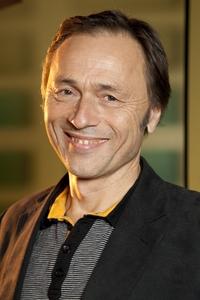Viva Voce Examination - Audun Myskja
June 22 at 10 am Audun Myskja will defend his doctoral thesis at a viva voce examination at the Grieg Academy. Myskja's dissertation is about the use of music and music therapy in nursing homes.
Main content
Title: Integrated music in nursing homes – an approach to dementia care
Time: Friday June 22, 2012 at 10.00 am
Location: Gunnar Sævigs sal, Grieg Academy - Department of Music, Lars Hillesgt. 3, Bergen
Opponents
First opponent: Hanne Meette O. Ridder, Professor, Aalborg University
Second opponent: Øyvind Kirkevold, Dr.philos, Norwegian Centre for Research, Education and Service Development
Head of the committee: Wolfgang Schmid, Associate Professor, PhD, University of Bergen
Brief summary
Core points in the dissertation:
- Integrated music builds on a synthesis of the work of trained music therapists and staff members applying music within a framework of systematic assessment and use of both prerecorded and live music based on preference principles.
- The integrated music approach emphasizes coping skills and community resources, involving family members, musicians and local resources like volunteers, healthy pensioners and music schools, seeking to ensure a framework of continuing quality control and assessment routines.
- The theory of personhood (ToP) and its application in person-centred care (PCC) may supplement the biomedical approach as therapeutic philosophy and a framework for the application of music in nursing homes.
- A synthesis of ToP and the progressively lowered stress threshold (PLST) model may enhance an understanding of how psychosocial strategies may be applied successfully through a consideration of psychosocial issues such as personal dignity, along with physiological variables like arousal levels.
- Ethics in nursing homes need to be practice-based and aimed at ensuring that the impaired person`s perspective is understood.
- Research methodology addressing the use of music in nursing needs to be flexible, contextual in its approach and address manageable unit of inquiry. Ideally, quantitative and qualitative approaches should be mutually supportive, elucidating issues directly relevant to the patient population.
- Psychosocial strategies need to be clearly defined for research and practice, including how they may be integrated into daily practice in conjunction with other therapeutic modalities.
- The present use of music in nursing homes needs to be lifted from “tacit knowledge” into consistent therapeutic strategies addressing clinical issues.
- Enhanced consciousness of the sound environment at institutions should be focused on, specifically addressing sources of noise and deleterious effects of music and media not based on preference assessment.
- The therapeutic application of music needs to be based on preference assessment and individualized.
- Music therapy performed by trained music therapists may address a number of clinical issues in nursing homes, allow for group work and present advanced techniques for specific issues.
- Music therapists should be integrated in he daily activity at wards allowing for mutual learning and professional crossfertilization potentially increasing access to coping resources.
- Individualized music has been developed into a consistent empirically based therapeutic strategy where the elements the approach are defined to inform research and practice.
- A pilot study has shown that individualized music may reduce agitation levels in residents
- Care singing is a simple therapeutic intervention developed for procedure-related agitation. A study based on video analysis according to the Marte meo approach indicated that care singing reduces resistance to washing and similar procedures and increases patient cooperation.
- An implementation study applying an integrated approach to the use of music in five nursing homes in a local community indicated that an integrated approach to music can be taught nursing and nurse`s aide students at low cost, integrated into daily routines at institutions and be applied directly to clinical challenges, with a hogh degree of user satisfaction.
- A qualitative study on wellbeing support the role of music in furthering wellbeing, indicating that vitality, joy and peace (transcendence) are key elements in wellbeing
- The concept provision of needs, emerging as a synthesis of the strands of research comprising the dissertation, is presented as a term increasing understanding of the plight and needs of nursing home residents, opening for a more unified research effort in understanding how the therapeutic use of music may find its place in the spectrum of treatment options in nursing homes.
Audun Myskja, a chief physician and specialist in general medicine, has led and supervised many projects within elderly care and dementia care, written 13 books of which 3 are aboout music in the health care system, and released 12 CDs and instruction DVDs with music and instructions for relaxation and training. He is teaching nationally and internationally in the use of music in the health care system.
Trial lecture
PS! The trial lecture will be in Norwegian.
Title: Implementering av tilnærmingen "integrert musikk" i norsk demensomsorg: roller, profesjonelle ferdigheter og ressurser.
Related questions:
Hva er de primære og supplementære elementer i integrert musikk?
Hvilke krav stiller en integrert musikktilnærming til profesjonelle aktører, slektninger og lokale ressurser, og hvordan kan dette bli implementert i norsk demensomsorg?
Time: Thursday June 21, at 18.00
Location: Gunnar Sævigs Sal, Grieg Academy - Department of Music, Lars Hillesgt 3, Bergen
